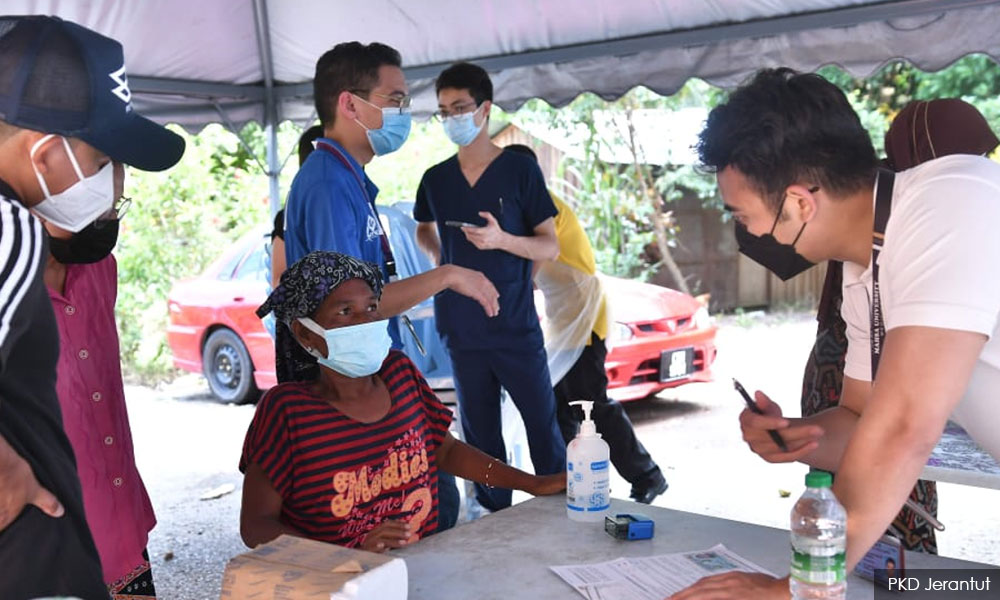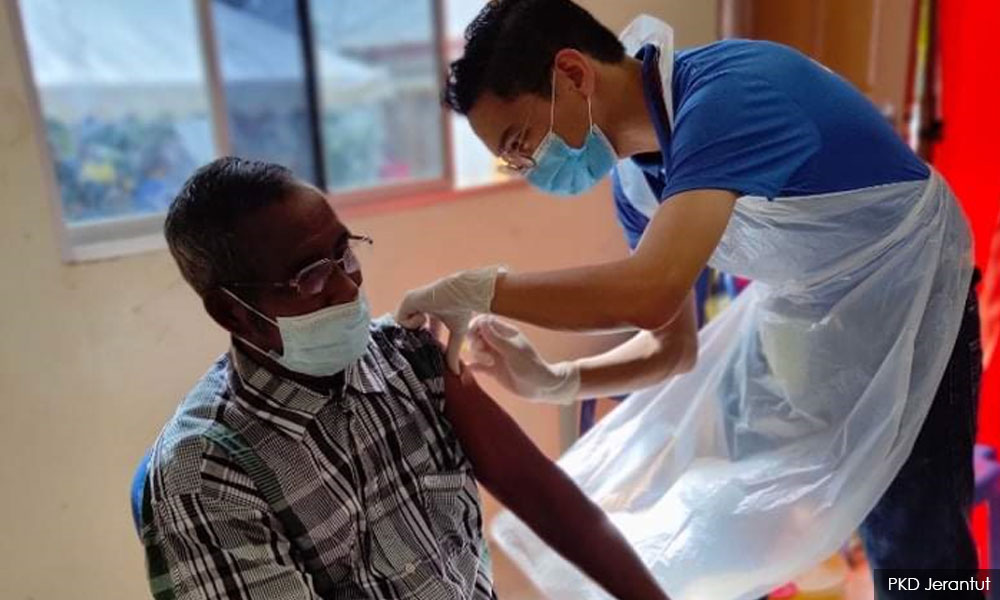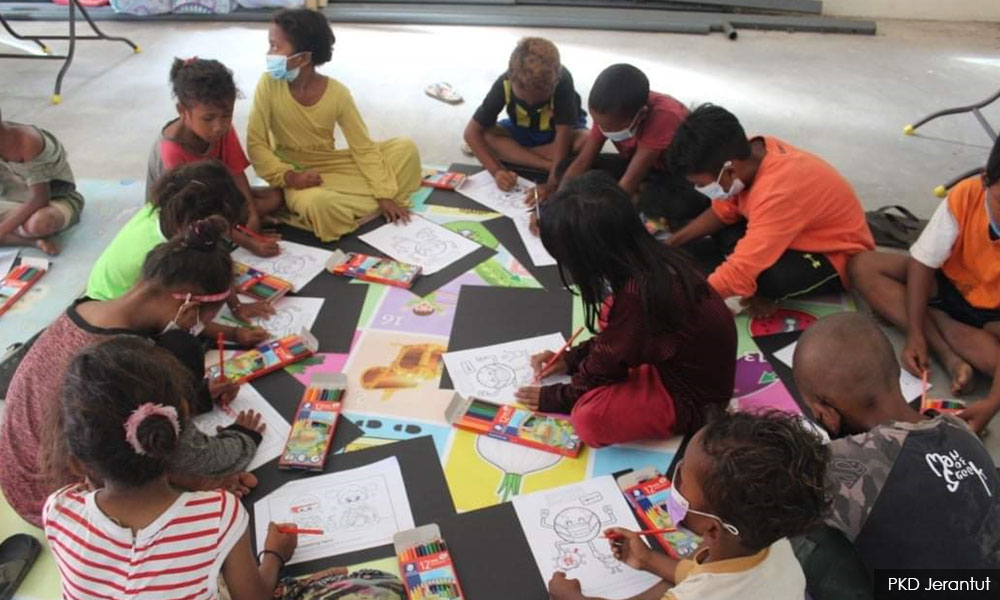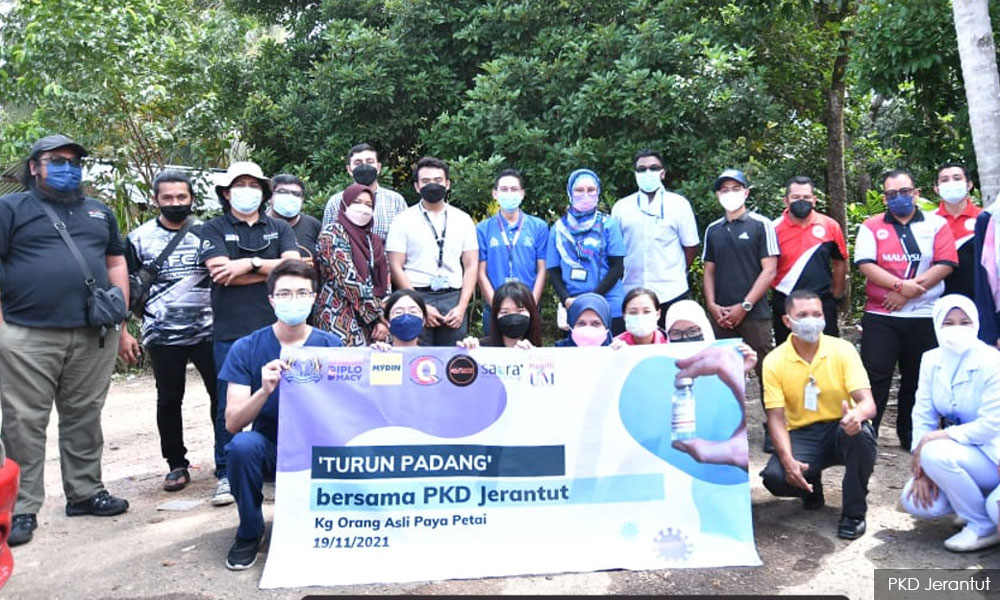The Malaysian Health Diplomacy Society is seeking to raise awareness on Covid-19 vaccination in one of the few remaining unvaccinated vestiges of the Orang Asli community in Jerantut, Pahang.
Collaborating with the Jerantut District Health Office, Malaysian Medical Association (MMA), and retail chain Mydin, the ‘Turun Padang’ programme was created in response to increasing Covid-19 cases in the state’s Orang Asli.
Medical officer Dr Jeshua Nevaraj said the group gained the trust of villagers in Kampung Orang Asli Paya Petai by organising a ‘family day’-like programme, which included games and other activities, on a recent trip.
This was done to highlight the importance of vaccines to the villagers - who were largely unvaccinated prior to the programme.
“While they were participating, we taught them about the importance of vaccinations, and provided some essentials that are important to them - such as rice, sugar, oil - and that actually kind of encouraged them to take the vaccines,” he told Malaysiakini.
Tok Batin’s persuasive powers
When asked about the presence of ‘anti-vaxxers’ in the village, Jeshua hesitated to use the term as he felt that the Orang Asli have a perception that modern medicine is not as effective, compared to traditional practices, rather than harbouring prejudice against vaccines.
He drew attention to the role of the Tok Batin (Orang Asli village chief) in persuading their communities to trust the Covid-19 vaccines.
“One thing you have to understand about the Orang Asli. They (have more) trust (in) their Tok Batin - compared to healthcare workers.
“There is this perception about modern medicine that it can cause death or bring bad luck towards them, so when you approach them, you have to approach them in a very subtle way, as in, you've got to gain that trust and make sure that they feel respected.


He added that this was where the sponsorships provided by the MMA and Mydin proved useful as they had the resources to gain the trust of the community.
“We had essentials such as rice, milk powder, sugar, oil, and toys for the kids. The first two tribal leaders came and accepted (the gifts). Then, they encouraged their villagers to come out.
“The Jerantut District Health Office did not expect this response from them - that's why I need to emphasise that this is not only an initiative by (the) Malaysian Health Diplomacy Society, but a combined initiative (with) the MMA and Mydin, which helps make this project a success,” he said.
In September 2021, Rural Development Deputy Minister Abdul Rahman Mohamad said there were 144,180 Orang Asli eligible for the inoculations.
However, as of October, only 115,516 were reported to have received their vaccine shot.


Vaccine choices
Out of approximately 150 villagers, 70 opted to get vaccinated - with the vaccine on offer being CanSino, a single-dose vaccine reserved by the Health Ministry for indigenous or rural communities that lack access to urban healthcare.
“The advantage of this vaccine is that it will not need a booster dose. However, the efficacy is not as high as the other vaccines that you have, so the coverage is about 65 percent, on average.
“Looking at our predicament and having trouble reaching this community in the first place, getting them to come out for the booster dose would be quite a challenge,” he said.
As of November 2021, single-dose Cansino recipients account for 0.1 percent of the country's population. - Mkini



No comments:
Post a Comment
Note: Only a member of this blog may post a comment.